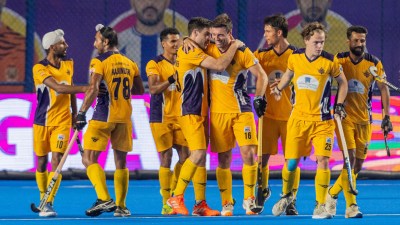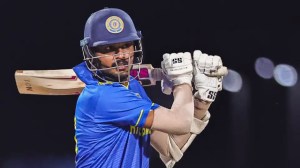League of rivals
The BCCI8217;s 8216;advice8217; to Laxman and Piyush Chawla smacks of vindictiveness

There are boycotts, and boycotts. Back in 1976, African countries kept away from the Montreal Olympics as a protest against the participation of New Zealand, whose rugby team had earlier toured apartheid South Africa. Sport was integral to the effectiveness of sanctions in the eventual dismantling of the apartheid system. The 1976 boycott may, in hindsight, appear an over-reaction but it nonetheless drew from some principle. The BCCI, in its wisdom, has done a 1976, but all it has proved is how unprincipled the board can be in its decision-making. This month the BCCI 8220;advised8221; V.V.S. Laxman and Piyush Chawla against signing with English counties because the respective counties were tainted by the participation of players from the Indian Cricket League.
This is unbridled intimidation. The BCCI8217;s concern clearly draws from its Indian Premier League8217;s competitiveness with the ICL, and its understanding that the IPL8217;s commercial success would be maximised by the decimation of the ICL. It is also perhaps more than a footnote that the England Cricket Board is trying to set up its own rival league. Those would be legitimate commercial concerns if the BCCI8217;s remit were not much larger. It is not just that its actions smack of vindictiveness. The board is responsible for the promotion and development of cricket and cricketing talent in this country. This cannot be done if cricketers are not allowed to gather exposure and experience due to petty considerations.
Laxman wants to play for Nottinghamshire, which the BCCI says is corrupted by the presence of ICL players Andre Adams and Chris Cairns of New Zealand and Chris Read England. Chawla is to be stopped from filling a space vacated by Shane Warne because Hampshire has in its ranks Nic Pothas and Nantie Hayward South Africa and Ian Harvey Australia. The control freaks in the BCCI need to be told that boycotts draw credibility only from principle, not from vindictiveness.
- 01
- 02
- 03
- 04
- 05































